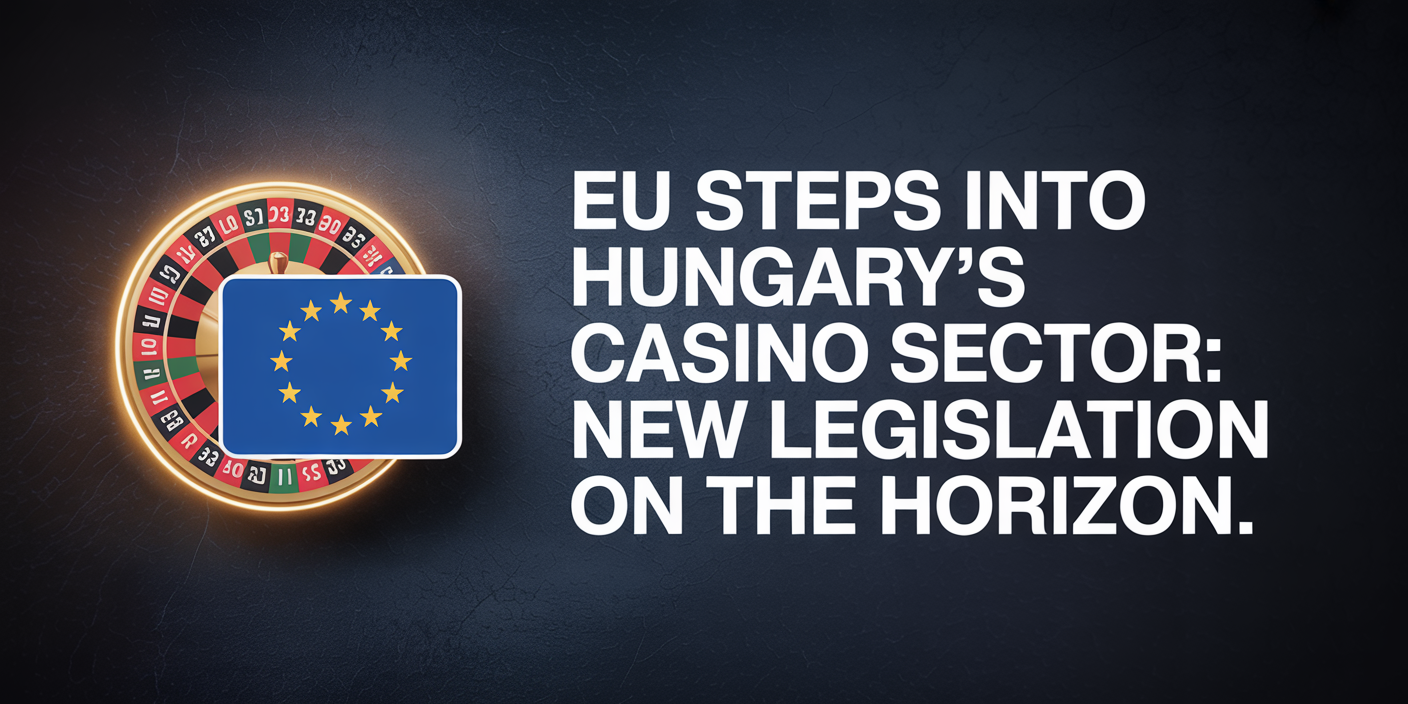
A newly submitted legislative bill may significantly alter Hungary's online gaming law. The legislation (No. T/366/6) is in reaction to a decision made by the European Union's Court of Justice, which ruled that Hungary's current system was not in compliance with EU law, and law had to be altered.
With the legal opinion of Dr. János Rausch and Dr. Balázs Unger of Bán, S. Szabó, Rausch & Partners, this article discusses the proposed changes, affecting on-line casino games and card games, and sports betting. Interested readers can also learn about how comparable regulatory changes impacted other European markets with ratings at Onlinekaszinomagyar.com.
Under the existing laws, all forms of gambling in Hungary must have a license from the national tax authority. Most of the gambling licenses (excluding horse racing) belonged to Szerencsejáték Zrt. and those of horse betting to Lóversenyfogadást-szervező Kft., both of which were state-owned.
Other economic actors had only been able to obtain gambling licenses through a state concession process. Licensees for online casinos could only be granted to licensed land-based casino operators who were physically based in Hungary.
The bill at issue is incidentally related to a case in Sporting Odds Ltd., a UK entity running an online casino business in Hungary without concession or license. As a result, the company was penalized by the Hungarian tax authority.
Sporting Odds protested the fine, arguing that Hungary's regulations ran counter to EU law. Since no public tender was held for licenses for online casinos and only those who owned physical casino concessions in Hungary were eligible, Sporting Odds was effectively excluded from the market. The company lodged a legal complaint, which found its way to the Court of Justice of the European Union to rule on the conformity of Hungary's rules with EU law.
The Court of Justice of the European Union adjudicated that the Hungarian provision was discriminatory against companies from other EU member states and against the freedom to provide services principle. Specifically, restricting online casino licenses only to land-based casino operators amounted to a disproportionate restriction.
Furthermore, the concession system gave the national economic minister discretion to grant concessions without a public tender and favored so-called "trusted" operators—those with previous experience in running gambling services in Hungary. This lack of transparency and de facto exclusion of foreign bidders were held to be incompatible with EU law.
In turn, the Hungarian government submitted a new general bill modifying several economic regulatory statutes. The central emphasis of the bill is the deregulation of internet gambling regulation on EU principle grounds.
One of the most significant changes is that online gambling and betting licenses may be issued by the Supervisory Authority of Regulated Activities (SZTFH), which replaced the tax authority as regulator. With this new law, any EEA member state-based operator is eligible to apply for a license, promoting freedom to provide cross-border services. The licenses are unlimited in number, but those who have been involved in unlawful gambling during the last five years in any jurisdiction of the EEA will be excluded.
The technical and licensing requirements will be specified by SZTFH secondary legislation.
In the opinion of Dr. Balázs Unger, "The proposal limits online casino games for Hungarian IP address users, and operators need to ensure that this limitation is applied. Even though this introduces some sort of discrimination, it is not clearly shown why Hungarian IPs only are to be permitted. Furthermore, gambling servers need to be set up within the EEA and permit remote access for the regulator."
Additional regulations have been proposed for payment service providers, specifically the maintenance of an updated official list of licensed gambling operators. If the regulator instructs payment providers to block an unlicensed operator, they will be penalized for non-compliance. For example, if a payment provider fails to block the transaction that is linked with illegal gambling activity, administrative sanctions will be applied, and the gambling operator itself will be banned from operation.
Taken on board, the new act will allow any EEA-headquartered firm with the appropriate licenses and concessions to legally offer internet gambling services in Hungary. Since there is no cap on the number of licenses, it can potentially bring market entrants to the market.
The new regulation can give a chance to foreign operators to enter the market lawfully, so there will be increased competition between online gambling players. But due to mandatory official register for transparency purposes, regulatory control will be more stringent in the future," conclude experts of Bán, S. Szabó, Rausch & Partners.